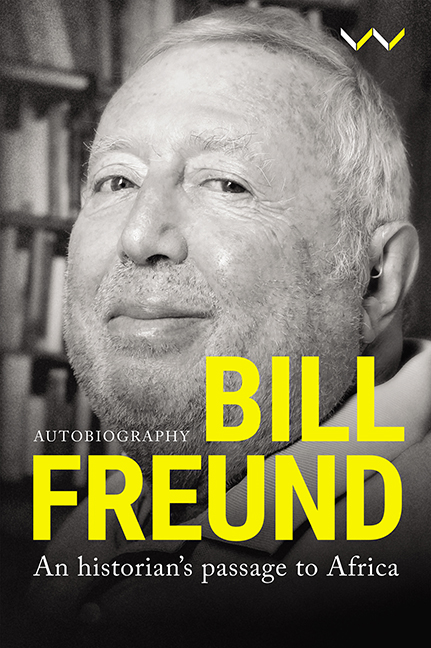Book contents
- Frontmatter
- Contents
- Foreword: Bill Freund and the Making of His Autobiography
- Family Tree
- A Brief Introduction
- 1 The Austrian Past
- 2 The Aftermath of War: A Perilous Modernity
- 3 The Dark Years
- 4 A New Life in America
- 5 Adolescence: First Bridge to a Wider World
- 6 As a Student: Chicago and Yale
- 7 As a Student: Africa and England
- 8 The Tough Years Begin
- 9 An Intellectual and an African: Nigeria
- 10 An Intellectual and an African: Dar es Salaam and Harvard
- 11 South Africa, My Home
- Notes
- Select Bibliography of Bill Freund’s Publications
- List of Illustrations
- Author’s Acknowledgements
- Supplementary Acknowledgements
- Index
10 - An Intellectual and an African: Dar es Salaam and Harvard
Published online by Cambridge University Press: 15 June 2021
- Frontmatter
- Contents
- Foreword: Bill Freund and the Making of His Autobiography
- Family Tree
- A Brief Introduction
- 1 The Austrian Past
- 2 The Aftermath of War: A Perilous Modernity
- 3 The Dark Years
- 4 A New Life in America
- 5 Adolescence: First Bridge to a Wider World
- 6 As a Student: Chicago and Yale
- 7 As a Student: Africa and England
- 8 The Tough Years Begin
- 9 An Intellectual and an African: Nigeria
- 10 An Intellectual and an African: Dar es Salaam and Harvard
- 11 South Africa, My Home
- Notes
- Select Bibliography of Bill Freund’s Publications
- List of Illustrations
- Author’s Acknowledgements
- Supplementary Acknowledgements
- Index
Summary
Despite what had certainly become an attachment, leaving Nigeria was not much of a wrench; the discomforts involved in trying to lead a middle-class academic's life in this setting were too great. Those letters with job applications continued to get me absolutely nowhere, so I needed a plan. I managed to apply successfully to the American Social Science Research Foundation for a project that I had little intention of actually doing. This gave me a small income at the level of a graduate student for a year, which could be stretched. And a natural (by this time) if fateful decision was to choose to go to England, where I had passed a significant part of each summer vacation, particularly in 1977, as I shopped around for a place to make my headquarters. So in the middle of 1978 I left Nigeria again, never to return, with once again no job.
Here there are really two points to make. One was my distaste for the idea of going back to jobless America. I had little sense of post-Vietnam, Carter-era America and where it might be going and felt very out of touch, but there was nothing to attract me. Beside my range of friends in Britain and the largely British friends I made in Zaria, my way of expressing myself and living in a daily sense was in any case more and more English and less and less American.
The second was that, thanks to heeding Bob Shenton's wise instinct, I was finding my footing as what I am still today – a trained historian with a predilection for political economy, a strong interest in contemporary politics, and a sense of being at home in a milieu of Marxist and left scholarship, particularly focused on Africa and the Third World. And in England I now regained my foothold in this community with some sense of belonging and attachment. I was very happy in this intellectual world in the late 1970s even if I could not for long push aside the realisation of how thin my material foundation was for this life. During the two years that I stayed in Britain on and off (1978–1980), I did finally get job interviews but the market was tight, the competition more than respectable, and nothing in the end came my way.
- Type
- Chapter
- Information
- Bill FreundAn Historian's Passage to Africa, pp. 141 - 160Publisher: Wits University PressPrint publication year: 2021



